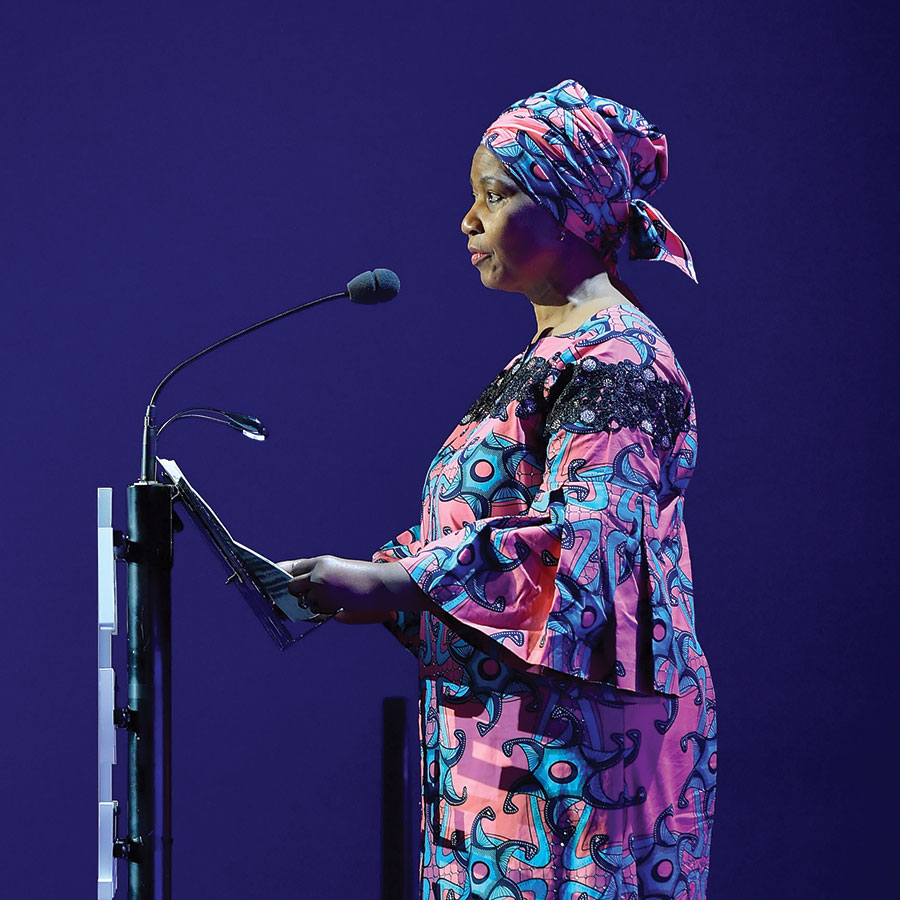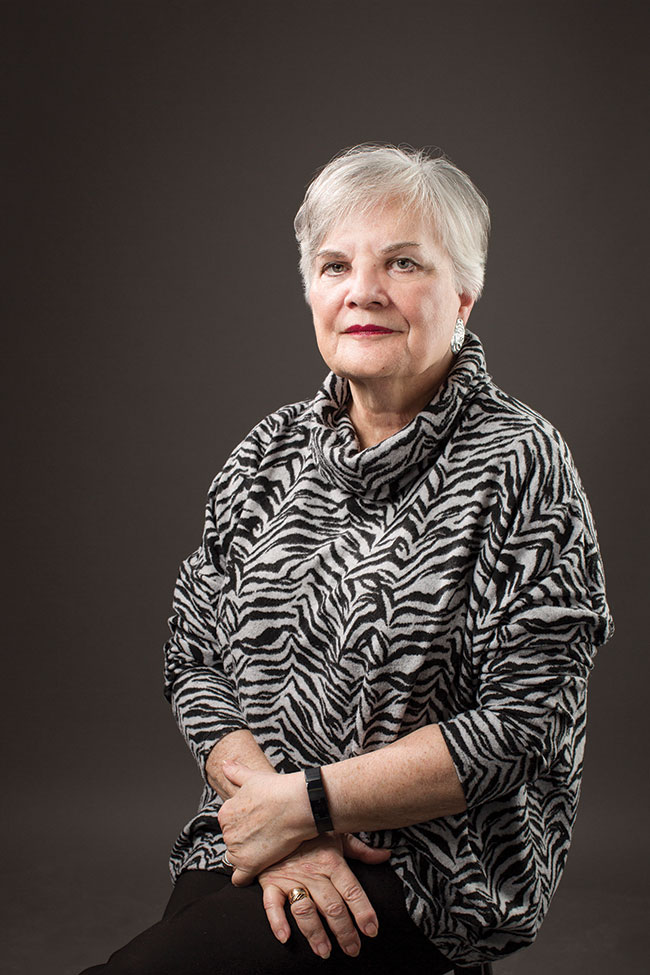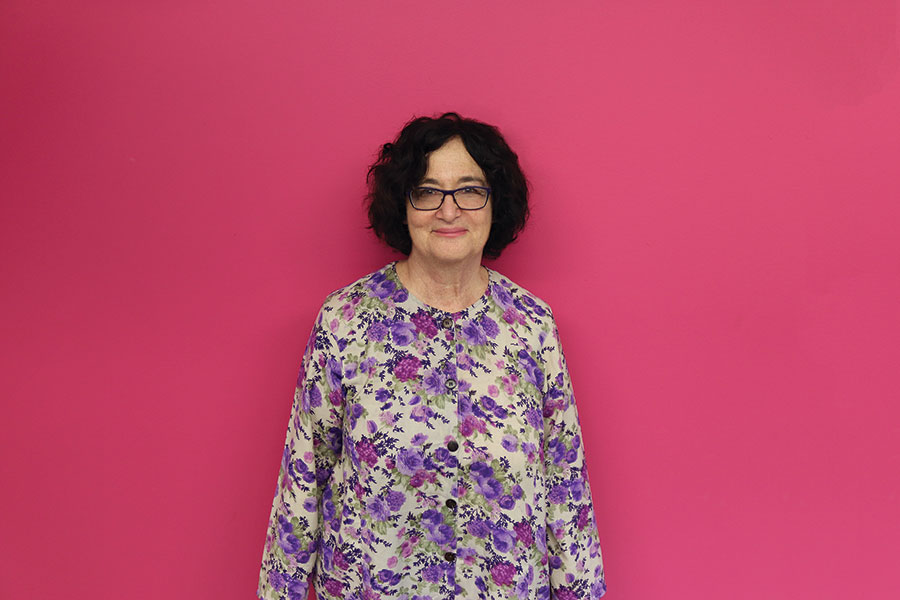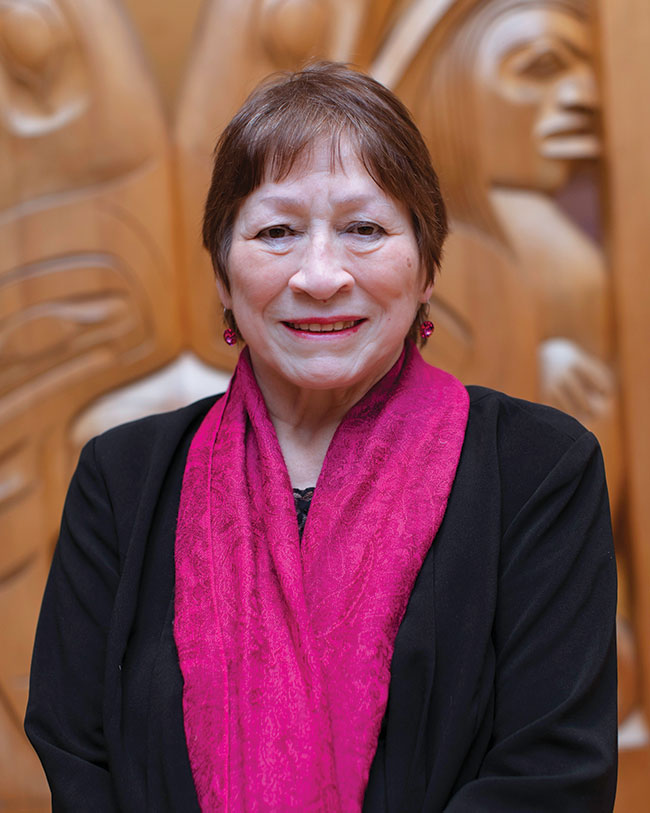Meet the Women Fighting for the Promises Made at the UN Conference on Women’s Rights More Than 25 Years Ago

Some of the gains in women’s rights made in Beijing in 1995 have been rolled back, says UN Women executive director Phumzile Mlambo-Ngcuka, who adds, “I am hopeful and I can see things moving forward.” Photo: Roy Rochlin/Getty Images for Tribeca Film Festival/Phumzile Mlambo-Ngcuka
More than a quarter-century after 189 states pledged to improve the lives of women at the United Nations Beijing conference in 1995, no country can claim gender equality. And with the United Nations Generation Equality Forum kicking off today (June 30) through July 2, we revisit our 2020 story in which Gloria Galloway explains why UN Women, Beijing warriors and new feminist recruits are signing on to Generation Equality.
It was a visionary and transformative document that set human rights standards for women around the globe with the goal of eradicating the poverty, violence and general inequity in pay and power that prevents mothers and daughters, grandmothers and aunts from reaching their full potential.
Twenty-five years after 189 states signed the Beijing Declaration and Platform for Action at a United Nations world conference on women, its lofty goals are far from realized. No country on the planet can claim to have achieved gender equality, and many have made few gains.
UN Women, an agency created by the United Nations in 2010 to address gender equality and the empowerment of women, estimates that 35 per cent of the world’s 3.9 billion women have experienced either physical and/or sexual intimate partner violence or sexual violence by a non-partner (not including sexual harassment) at some point in their lives. Female genital mutilation is still practised in more than 30 countries, and more than 650 million women and girls alive today were married before the age of 18.
Still, some of the women warriors who attended that meeting in China over nine days in September 1995 say it would be wrong to downplay the declaration’s significance or to overlook the many changes it set in motion.
More women than ever hold seats in governments around the world, more are protected from gender-based violence, more have access to health care and education and fewer live in poverty. Some of that, say women’s rights activists, is directly attributable to the Beijing Declaration.
Now, UN Women is picking up where those who attended the meeting 25 years ago left off but, this time, the battle cry is Generation Equality, which encompasses two forums commemorating the Beijing Declaration planned for Mexico City in May and the other in Paris in July.
“The Beijing Declaration is the most comprehensive document that exists, that has ever been agreed to by member states on gender equality,” says Phumzile Mlambo-Ngcuka, the former deputy president of South Africa who fought to end apartheid in her country and is now the executive director of UN Women. “If you remove it, there is nothing that holds the member states of the United Nations together on issues of gender equality.”
The Declaration and Platform for Action are not legally binding. But civil society organizations and other stakeholders point to them as they call on their governments to uphold the commitments they contain.
Twenty-five years on, some of the gains that were made, particularly in the area of reproductive rights, are being rolled back, Mlambo-Ngcuka says in a telephone interview from her New York office. Last year, for instance, the United States sent a letter to UN member states urging them to join a “growing coalition” rallying against abortion.
But “we have made progress,” she says. “One hundred and fifty-one countries have passed one law or another to eliminate discriminatory practices.”
The Beijing conference was the culmination of years of negotiations, both behind the scenes and at international meetings, where partial agreements were hashed out. It attracted an unprecedented 17,000 participants, while Canada sent an official delegation of 42.
Going into Beijing, more than 30 per cent of the provisions in a draft declaration were “bracketed,” which meant they were points of contention. That made talks at the main meeting long and difficult.
“There was a lot of disagreement and deliberations, but also there was a lot of willingness to find consensus, a lot of compromises. There was a spirit of wanting to raise the bar,” says Mlambo-Ngcuka, who was there representing South Africa. “They really wanted to put on the table something that was substantive and something that had not been done before.”
On the final day, the Declaration and the Platform for Action were adopted by consensus, and all of the brackets were removed.
At the time, Tanzanian politician Gertrude Mongella, who was the secretary general of the Beijing Conference, said the agreement would be the final test of the global community’s commitment to equality.
“The Platform is a document for the world; but for women, it is their document since it embodies the aspirations, hopes and actions that will guide us all into the 21st century,” Mongella told the assembly in Beijing. “In fact, the Platform is for everyone. There can be no spectators, no sideliners, no abstainers, for this is the crucial social agenda that affects all humanity.”
The Declaration itself is 38 paragraphs long and covers 12 areas of concern to women: poverty, education, health, violence, peace, economic structures, decision-making, mechanisms for women’s advancement, human rights, media, the environment and the girl child. The Platform for Action is a weighty tome at 361 paragraphs.
Despite the ambitious goals, the Declaration and Platform for Action were not backed by funding commitments. Instead, member states were urged to allocate resources to develop their own national plans to achieve gender equality. This time around, six multi-stakeholder Action Coalitions to be launched in Paris will get funding to deliver results on six themes, such gender-based violence and feminist action on climate change.
On a positive note, she said there now are women in high places who are articulating the issues and men in positions of privilege and power who are advancing women’s rights. One of them is Canadian Prime Minister Justin Trudeau.
From the start, Trudeau led by example: appointing a cabinet in which half of the ministers were women; as a steward of the G7 Gender Equality Advisory Council; by championing the HeForShe global movement for gender equality; and by launching Canada’s Feminist International Assistance Policy, which will see Canada spend nearly $150 million over five years to eradicate poverty and empower girls and women around the world.
Trudeau “has clearly made gender equality one of the priorities of his mandate,” says Mlambo-Ngcuka.
Leaders in other countries are also taking action. Lebanon, Jordan and Tunisia have repealed laws that allowed rapists to avoid prosecution if they married their victims. In Malawi, a country with one of the highest rates of child marriages in the world, parliament adopted a 2017 constitutional amendment that raised the minimum age of marriage from 15 to 18 years.
“We have got to be activists the old-school way,” says Mlambo-Ngcuka. “I am hopeful and I can see things moving forward because people are actually raising their hands and committing to make the change.”
Here are four stories from women on the front lines, three Beijing warriors and one young feminist who has been selected to represent Canada on the UN’s Beijing+25 Youth Task Force.
Ruth Archibald • 70
Ottawa

Ruth Archibald reluctantly went to Beijing. Going into that 1995 UN conference on women’s rights, she knew how contentious some issues, especially those related to reproduction, would be.
Archibald, who was director of the population division of Canada’s department of international affairs, was nominated to chair the negotiations on adolescent reproductive health by people who had attended a meeting on population and development in 1994 in Cairo where she served as Canada’s chief negotiator.
She was hopeful that disagreements, especially those around reproductive rights, would be resolved in China. Instead, she says it is clear that “we ended up having the battles for the last 25 years.”
Access to reproductive health has changed in the past quarter of a century, and the fact that it was included in the Platform for Action has been helpful in developing countries in particular.
Still, “if there is an annual resolution on health or something at the UN General Assembly, then somebody will start an argument on reproductive health,” she says. “It would be nice if we ended that discussion.”
But it is important to embrace the positive change that stemmed from the 1995 meeting and the documents it produced.
“Poverty has changed a lot. And education for women has changed a lot,” says Archibald, who is now retired after working for nearly 25 years as a public servant, many of them in foreign postings. “A lot of that goes back to Beijing or Cairo.”
Those conferences and others that preceded them set the standards that were the basis of women’s rights discussions for the next 25 years.
Some matters “are still quite contentious, but some of them have evolved in a large way,” she says. LGBTQ issues, for instance, “have evolved massively in terms of international consensus.”
While the member states who attended the Beijing meeting all signed the declaration, they were allowed to disagree with elements of the document, and many did.
But, overall, “We were quite pleased” with the result, says Archibald. For instance, rape is now considered a war crime. That, says Archibald, “started out in Beijing because there was such a broad consensus.”
Judy Rebick • 74
Toronto

Judy Rebick is one of Canada’s feminist icons. In 1995, the tough-as-nails human rights leader was a past president of the National Action Committee (NAC) on the Status of Women, an activist organization created in 1971 to demand equality and justice for Canadian women at a time when married women couldn’t get credit cards or mortgages in their own names.
The NAC had been a thorn in the side of successive federal governments of both stripes. So it was not surprising that neither Rebick nor her successor, Sunera Thobani, were asked to be part of Canada’s official delegation to Beijing.
But Rebick and Thobani still went to China for a concurrent forum for non-governmental organizations in nearby Huairou. Rebick spoke at the assembly, which attracted 30,000 people from 200 countries, where she talked about common issues in feminism around the world and the intensifying unity of the global fight for women’s rights.
The Beijing events marked a significant shift in the international women’s rights movement, according to Rebick. At previous conventions, there was a chasm between the women from highly developed countries and those from what was then known as the Third World.
By the time of Beijing, “The women’s movement in Canada had become much broader, much more aware of issues of immigrant women and Black women and Indigenous women than we had been 10 years before that,” says Rebick. “The Beijing conference was the unity of feminists around the world.”
Women’s rights activists have learned a lot in the past 25 years, but one of the main lessons is that laws and policies do not prevent violence against women when the justice system is patriarchal.
So despite the optimism of 1995, Rebick says huge problems remain, such as recognizing the value of women’s unpaid labour, wage
disparities between the sexes,
continued violence against women and the fact that child care is still not funded by the state. Rebick believes things will not change until the entire structure of capitalist society is changed.
“Capitalism requires reserve armies of labour,” she says. “Women’s unpaid work is necessary for the profits they have.”
But she is hopeful and says
the conferences scheduled for Mexico City and Paris are taking place at an opportune time.
“I think we are in a period now like we were in in the ’60s where we are at a crisis moment” with young people standing up for the environment, Indigenous people asserting their rights and populist movements against oppression in places like Chile and Lebanon. “At crisis moments, things happen … and I think the women’s movement and women in general – and feminism in general – is critical to making sure that the change that happens is in a progressive direction.”
Ethel Blondin-Andrew • 69
Norman Wells, N.W.T.

Ethel Blondin-Andrew views the 1995 Beijing Declaration on women as an incremental step on the road to female equality. Still, “Every public statement, every utterance that furthers the cause for women – their leadership, authority and their hands on the levers of power – is a good thing,” says Blondin-Andrew who, as the Liberal government’s secretary of state for training and youth, was part of Canada’s official delegation to the Beijing conference.
“There isn’t a silver bullet,” she says in a telephone interview. “Everything helps. The declaration helped. But it’s the everyday push of women in the system” that drives equality of the sexes.
Blondin-Andrew is a trailblazer in that respect. She is a Dene from Tulita, N.W.T., who, in 1988, became the first Indigenous woman elected to Parliament. She served 17 years as an MP, 13 of them in cabinet. After that, she was the chair of a land-claims organization for nine years and now sits on several boards of Indigenous and environmental organizations.
The Canadian delegation to Beijing was led by Sheila Finestone, the secretary of state for the status of women, who died in 2009. Blondin-Andrew’s
memories of the meeting have faded, but she recalls vividly a moment where Finestone turned to a
member of the Chinese delegation and asked how well women were represented in the upper echelons of her government. “And this woman turned to her,” says Blondin-Andrew, “and said, ‘I am the second in command of the military.’ It was just breathtaking.”
Despite its record of human rights violations, China’s 1954 constitution guarantees women “equal rights with men in all spheres of life.” At the Beijing conference, China made significant efforts to demonstrate its progress, although gender parity has fallen off since then and, this year, the World Economic Forum ranked China 106 out of 153 countries in terms of gender gap.
It may seem that global change has been slow, but Blondin-Andrew points out women are increasingly represented in the corridors of power, from government and universities to financial institutions and businesses. “You have a lot of good, strong women who represent multinational corporations,” she says. “What I want is to have women to continue to grow in those areas.”
Much of the advancement in male-dominated areas will be up to women themselves, says Blondin-Andrew. “Women have to understand that they have to accumulate asset value. They have to have control over their own resources in order to lead their own lives. It gives them the freedom to perform their functions in the workplace to a higher degree if they don’t depend on anyone or have to ask permission to have access to resources to do those things.”
Katherine Dibbon • 18
St. John’s, N.L.

Katherine Dibbon hopes her zeal for human rights and improving the lives of women will catch on.
Dibbon, an 18-year-old chemistry and political science student at Memorial University in St. John’s, is one of 30 young people from around the globe appointed by the United Nations to the Beijing+25 Youth Task Force.
They will take part in the review of the Declaration, which was signed six years before she was born, and carry the torch into the future. Their job is to report on the areas of gender equality that affect young people, the progress made and the actions still required.
Dibbon, who has been an adviser for aid organizations, the Atlantic Council for International Co-operation and the RCMP, says the task force will spread the desire for change by enlisting young people in the fight for gender equality.
“I am one of the younger ones on the task force, so it is really exciting to be able to bring that to people who are in high school and just starting their university career and haven’t really decided what they are going to do with their life,” she says.
Dibbon believes the document has had a direct impact on her life. Because of the feminists who came before her, she was encouraged to explore science and engineering. She has taken part in a model UN for high-school students, a youth parliament and other events aimed at getting women into politics.
“I grew up having all of these values instilled in me and learning how it is important to be connected with the people around you and be empathetic and to take passion in things you believe in and to stand up to people,” she says. “So when I found my passion for gender equality and trying to achieve that, my mom was right next to me, my whole family was right next to me 100 per cent of the way.”
Dibbon says she knows that women’s equality and social activism will always be part of her life, whether she chooses a career in medicine or law or politics.
“There is still a lot to be done – changing mindsets and educating people,” she says. But “the Declaration served as a catalyst for the women’s rights movement, and I think it has been unique and incredible to grow up in that time.”
She envisions a lot of hard work in the years to come. “The goal would absolutely be to have 100 per cent equality,” she says. “Whether that will happen, I am not sure. But we are very hopeful.”
A version of this article appeared in the May/June 2020 issue with the headline, “Women on a Mission,” p. 36.
RELATED:
Women’s Rights:”Only Half Is an Equal Share and Only Equal Is Enough”